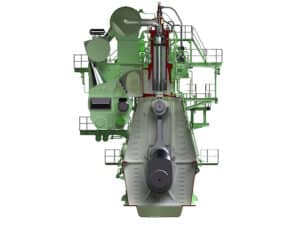
Op-Ed: 5 things to know about FuelEU Maritime and IMO MEPC 83
Written by Heather Ervin
Maria Angeles Lopez
Commentary from Maria Angeles Lopez, Decarbonization Manager at Peninsula
As of January 1, 2025, the maritime industry has been navigating a new regulatory landscape with the introduction of FuelEU Maritime, a regulation aimed at reducing emissions and encouraging the transition to cleaner fuels through an emissions-based financial penalty system.
While FuelEU Maritime is currently setting the pace for emissions regulations within the European Union, the industry remains abuzz with news of additional regulations set to be enforced by the IMO, following the Marine Environment Protection Committee (MEPC) meeting in April.
While the IMO regulations are still to be finalized, and are not expected to come into force until 2027, it’s clear that IMO MEPC 83 signals the future of maritime decarbonization, and shipowners should be prepared for the broader impact.
So, what do shipowners and operators need to know about FuelEU Maritime and IMO MEPC 83?
- FuelEU Maritime vs. IMO MEPC 83: Different Scopes, Unified Goals
FuelEU Maritime applies primarily within EU waters, imposing penalties on high-emission journeys and indirectly mandating a shift away from conventional fuels. In contrast, the forthcoming IMO MEPC 83 framework will extend global reach, advocating not only for alternative low-emission fuels, but also for improvements in energy efficiency and route optimization in order to meet global sustainability objectives.
- Economic Implications: Beyond Fuel Costs
While FuelEU Maritime imposes fines, MEPC 83’s proposed updates will likely emphasize operational enhancements and energy efficiency as crucial compliance factors. Shipowners will need to weigh these financial penalties against the costs of adopting alternative fuels like LNG and biofuels, which, despite their upfront costs, could prove more economical in the long run due to reduced emissions penalties.
- Compliance Requirements: Geographical and Operational Considerations
While FuelEU Maritime affects any ship operating in EU waters or traveling to and from EU ports, MEPC 83 will impact vessels globally, demanding comprehensive strategies integrating fuel efficiency and operational optimization. The adoption of clean alternative fuels alone will not suffice—shipowners must enhance vessel efficiency through optimized hull designs, smart routing, and advanced propulsion systems.
- Technological Integration: Fuel Solutions and Beyond
While LNG and biofuels are viable options under FuelEU Maritime due to their established infrastructure, the adoption of clean alternative fuels alone will not be enough to meet the increasing demand. MEPC 83 will encourage a comprehensive strategy, encompassing fuel efficiency, operational optimization and advanced technologies. Shipowners are advised to invest in technologies like AI-driven voyage optimization and waste heat recovery systems to ensure compliance and enhance sustainability.
- Future Projections: Harmonization and Strategic Preparations
By 2028, FuelEU Maritime will undergo a review, and it remains to be seen whether both regulations will coexist. Shipowners should prepare or the future by adopting new technologies and efficiencies now, ensuring compliance with both FuelEU Maritime and IMO MEPC 83. A holistic approach focusing on clean fuel consumption, energy efficiency, and innovative technologies will not only reduce operational costs but also position shipowners as leaders in sustainable shipping.
While FuelEU Maritime represents the present regulatory framework, IMO MEPC 83 will guide the future of maritime decarbonization. Early investments in energy-efficient solutions and a comprehensive strategy addressing both regulations will be critical for shipowners aiming to maintain competitiveness in the evolving maritime landscape.




